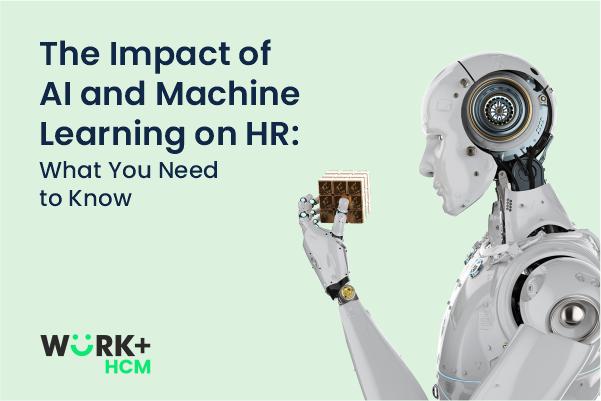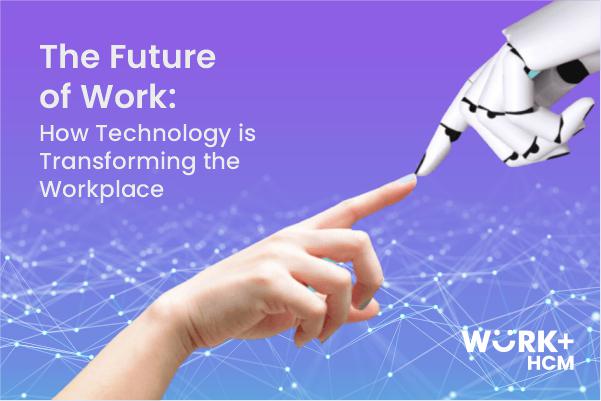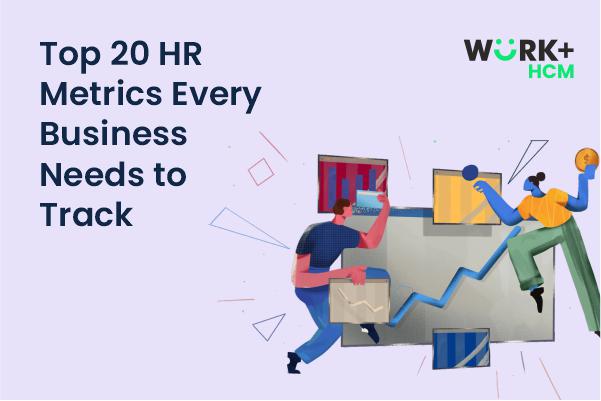Securing Employee Data

Securing Employee Data in the Age
of Cloud HRMS and AI
Jessica Calaoagan
October 14, 2025 | 12-mins read
HR departments are leveraging cloud HRMS and AI tools to simplify their work, which includes payroll, employee attendance, and employee engagement across the entire Middle East region. These platforms embody the vision of efficiency and insightful analytics. Yet, they raise a pressing question: How are companies able to secure sensitive worker data in a cyber, AI-enabled environment?
In the UAE and throughout the GCC, the question of HR data security extends beyond merely avoiding data breaches. It also involves data protection law compliance, earning employee trust, and creating a virtuous cycle of a digital workforce strategy. The article explores the types of HR data at risk, the applicable laws in the region, technical security measures, and company-wide governance that are crucial for enhancing cloud HRMS security in the UAE.
Sensitive Types of HR Data
HR departments hold some of the most confidential information within a company. In contrast to common business data, HR records often contain highly personal information (PII) and details that are sensitive and private. Some examples are:
Personal Identification Information
⦁ Details of the passport, Emirates ID, visa, phone number, and address.
⦁ Risk: Identity theft and usage of stolen identities for fraud.
Payroll & Financial Information
⦁ Information about salary, bank accounts, bonuses, and allowances.
⦁ Risk: Payroll fraud, salary leaks, and bad company image.
Medical & Health Records
⦁ Healthcare insurance claims, medical leave certificates, and occupational health reports.
⦁ Risk: Disclosure of secrecy and possible legal penalties due to healthcare privacy rules.
Performance & Behavioural Data
⦁ Ratings, disciplinary records, and productivity metrics.
⦁ Risk: The occurrence of bias, discrimination, or employee turnover if the data are handled improperly.
The use of AI-powered analytics for performance and workforce planning has led to an increase in the number of possible locations where this data could be compromised. Therefore, data privacy in HR software Middle East has become a geographical strategic necessity.
To secure employee data with reliable technology, explore HR Software UAE.
Risks in the Cloud HRMS and AI Era
Shifting the organization’s system from on-premise to cloud HRMS security platforms in the UAE is a trend that has resulted in the expansion of the attack surface. The typical vulnerabilities consist of:
⦁ Data Breaches: External hackers who take advantage of the security loopholes of cloud servers or HRMS applications.
⦁ Insider Threats: Employees or administrators who purposely misuse the access privileges given to them.
⦁ Compliance Violations: Non-compliance with the PDPL (Personal Data Protection Law) of the UAE or GDPR while handling sensitive data.
⦁ Cross-Border Data Transfers: The location of cloud vendors, who are mostly outside the UAE, raises concerns about sovereignty and control.
⦁ AI Bias & Misuse: Ethical and legal issues may arise from automated decision-making based on HR data without sufficient oversight.
The coexistence of these dangers implies that HR leaders must implement not only technical security measures but also create employee data management policies to ensure that data is handled responsibly.
Local Regulations & Compliance Considerations
1. UAE Personal Data Protection Law (PDPL)
The UAE PDPL was introduced in 2022 and set requirements for organizations, such as:
⦁ Permission to collect and manage the employee data.
⦁ Secure data storage and data transfers.
⦁ Notify the authorities and those who may be affected by the incident in the event of a breach.
2. GCC Data Protection Equivalents
The other Gulf countries besides the UAE have also come up with similar laws, for example, Saudi Arabia (Personal Data Protection Law) and Qatar (Data Protection Regulation), which mandate companies to keep the data locally and strongly control the data.
3. Cross-Border Data Transfers
This is one of the most vital issues that are raised in the case of cloud HR vendors whose servers are located in a different country, that is, outside the UAE. Companies need to verify whether the data transfer agreements they hold comply with local laws, particularly when the data is related to personal identification or payroll.
4. Vendor Responsibilities
Cloud vendors are required to secure their infrastructure, undergo various certifications (such as ISO 27001 and SOC 2), and provide their clients with the opportunity to implement access control. However, the ownership of the data and the responsibility for compliance still lie with the customer.
For payroll-specific compliance insights, read this related article: Cloud Payroll Software in Dubai.
Technical Best Practices for HR Data Security
Organizations certainly minimize their risks substantially by implementing good technical measures within their HRMS framework:
Encryption at Rest & Transit
⦁ Utilize AES-256 or similar encryption to protect databases (at rest).
⦁ For data in transit, implement TLS/SSL protocols to ensure secure transmission.
Role-Based Access Control (RBAC)
⦁ Don’t allow access to sensitive data for anyone who does not absolutely need the information.
⦁ Moreover, distinguish between HR admins, line managers, and employees.
Multi-Factor Authentication (MFA)
⦁ To lower the risk of unauthorized intrusions, add more authentication layers other than just passwords.
Audit Trails & Logs
⦁ Have records of every data access and modification.
⦁ Check these records for unusual activity on a regular basis.
Periodic Security Assessments
⦁ Engage in the penetration testing and vulnerability scanning exercises.
⦁ Ensure the company complies with relevant industry certifications.
Vendor Certifications
⦁ Choose vendors of HR software that are certified to be ISO, SOC, or GDPR compliant.
⦁ Check the security credentials of their cloud providers.
By implementing these controls in cloud HRMS security for UAE installations, organizations can protect employee data while still reaping the benefits of automation and AI-driven insights.
Governance & Policy Components
Firstly, the strong governance policies need to be supported by the technical safeguards.
1. Vendor Contracts & Service-Level Agreements (SLAs)
⦁ State directly the aspects of data to be owned and the place where it will be stored, and also mention the security responsibilities.
⦁ Contract breach notification clauses and liability terms are typically included in contracts.
2. Incident Response Plans
⦁ Detecting, reporting, and mitigating the effects of data breaches must be defined in all steps.
⦁ The HR and IT teams should be prepared for rapid reaction situations and trained accordingly.
3. Employee Training & Awareness
⦁ Enroll employees in courses on good data hygiene (e.g., not sharing login details, recognizing phishing attacks) on a regular basis.
⦁ Provide HR managers with the knowledge of the security aspects of the records they handle.
4. User Permissions & Consent
⦁ Firstly, employees, as data owners, should only keep the data if they voluntarily agree.
⦁ Provide employees with the right to access, modify, or delete their personal data in accordance with PDPL compliance.
5. Continuous Monitoring & Updates
⦁ Always keep policies checked against the most recent regulations.
⦁ Collaborate with suppliers to provide a security update for the product, ensuring it aligns with recent vulnerabilities.
The prevention measures in conjunction can be seen as a multi-layer data privacy in HR software Middle East model that not only benefits the company but also safeguards.
Case Examples from the UAE
⦁ Financial Services Firm in Dubai: Adopted a cloud HRMS that has strong encryption and RBAC. Insider threats lowered by 70% as a result of the more stringent permissions.
⦁ Healthcare Group in Abu Dhabi: Struggled with compliance issues due to cross-border hosting. They got on track with PDPL and reduced auditing risks by switching to a cloud vendor based in the UAE.
⦁ Retail Conglomerate in Sharjah: Put an AI-powered anomaly detection system to use in payroll records. The fraudulent activities were identified at a very early stage; thus, financial losses were avoided.
These very scenarios from the real world demonstrate that HR data security UAE is not a distant idea, but rather a primary concern that affects compliance, the trust of clients, and business sustainability.
Checklist for HR Leaders
Before the installation or update of a cloud HRMS, HR managers in the UAE need to ask questions such as:
⦁ Does the vendor abide by the UAE PDPL and GCC data regulations?
⦁ Are the data secured through encryption both when they are at rest and during the transfer?
⦁ Can I control the user rights through role-based access?
⦁ Does the system provide audit trails and incident response functionalities?
⦁ Is my employee data located at a domestic site or at an international site?
⦁ What security standards (ISO, SOC, GDPR) does the supplier follow?
⦁ Is the HR system designed in a way that it can handle consent and provide support for employee rights?
Final Thoughts
The incorporation of AI and cloud-based HRMS as the fundamental part of HR services has resulted in a massive challenge of securing employee data. Companies located in the UAE and the Middle East need to understand that HR data is no longer just another data set; it is an extremely valuable asset that, if stolen, can cause the organization to face regulatory fines, reputation risks, and lose the trust of employees.
Organizations need to leverage the interplay between technical safeguards, regulatory compliance, and robust governance policies to make informed decisions about achieving security while also fostering innovation. The role of automation in HR operations is not only the future, but also a trust-driven digital ecosystem that is efficient and privacy-compliant.


